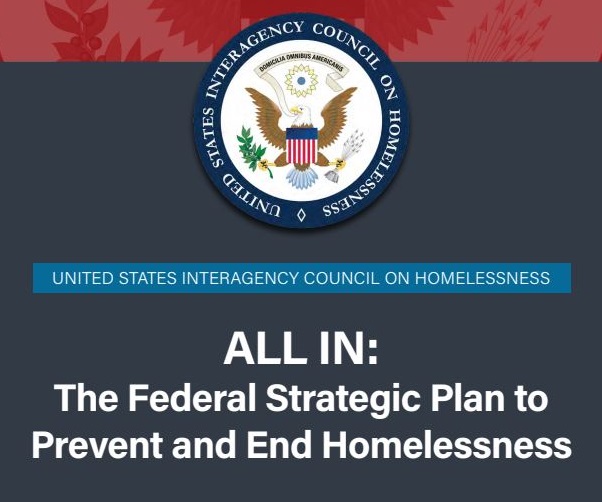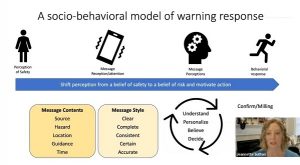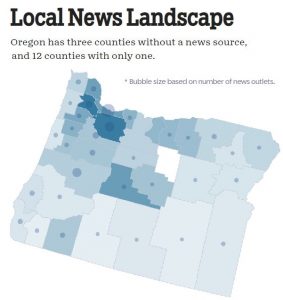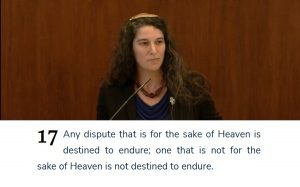2023 point-in-time homeless count shows 12% increase
8 min read
by Jeff Olivet, United States Interagency Council on Homelessness
When the U.S. Interagency Council on Homelessness released our new homelessness strategy this time last year, we knew the nation was facing a deadly public health crisis that has been decades in the making. The data released Dec. 15, based on the Point-in-Time Count in January 2023, confirms the depth of the crisis: a 12% increase in homelessness from 2022 to 2023, representing at least 653,104 people who were living without a home.
Many factors drive homelessness, but the most significant root causes are the shortage of affordable homes and the high cost of housing that have left many living paycheck to paycheck and one crisis away from homelessness. In 1970, the United States had a surplus of 300,000 affordable homes; today, only 33 affordable homes are available for every 100 extremely low-income renters. At minimum wage, people have to work 86 hours a week to afford just one bedroom.
When full-time minimum wage workers—many of whom are working while homeless—can’t afford rent in any county in America, the system is broken. We also know that homelessness is the failure of multiple systems, and to address it, we must simultaneously prevent people from losing homes in the first place; we must expand housing and make it more affordable for all Americans; and we must scale services that help people stay housed so that they are available to everyone who needs them.
That means expanding access to health care (including mental health care and substance use treatment), supporting domestic violence victims, and helping people find jobs and pay the bills. And all of these solutions must be executed with an evidence-based, all-hands-on-deck approach based on what people who have experienced homelessness say they need.
Over the past year, since this data was collected, our nation has taken major, unprecedented action to address homelessness head-on:
- We helped more than 424,000 households exit or avoid homelessness, and we surpassed our goal to rehouse more than 38,000 veterans experiencing homelessness this year.
- We as a nation are on track to build more apartments this year than any other on record, thanks in large part to the White House’s Housing Supply Action Plan.
- We invested nearly half a billion dollars to address unsheltered and rural homelessness and are working closely with mayors and governors to cut red tape that makes it hard for people to move off the streets and into homes.
- We improved Medicaid to let more states use waivers to pay for housing and wraparound supports (including mental health care and substance use treatment), and we made it easier for health providers to treat people where they are—in the streets, shelters, and encampments.
- We built the foundations for national eviction and homelessness prevention systems and provided more federal rental assistance in the last three years than in the previous 20 years.
Even in communities where homelessness is rising, it doesn’t mean they aren’t helping people exit homelessness. In many cases, the problem is that for every person who moves off the street and into a home, more than one loses a home and becomes homeless. The 2023 PIT data illustrates this, and until we close the doors to homelessness, we will not end it. That is why preventing homelessness is a priority for this administration and a major part of All In: The Federal Strategic Plan to Prevent and End Homelessness.
All In was inspired by the solutions communities are creating every day, and in the face of challenges, amazing work is happening around the country. This year, I witnessed many creative and important efforts in so many communities. In Aurora, Colorado, I saw supportive housing built with trauma-informed design. In Oahu, Hawaii, I sat with people transforming their long-term encampment into a community of dignified homes. I visited places that were built with the help of federal COVID relief funding: a shelter in Phoenix that had been converted from a government office and a housing development in Los Angeles County that repurposed shipping containers into short-term housing for people experiencing homelessness. In Oklahoma City, I listened to young people—mostly youth of color who identify as LGBTQ+—who are using their experiences of homelessness to shape the city’s response.
We understand that homelessness is a human issue—not a partisan one. That’s why USICH’s plan calls on all parts of the federal government, as well as mayors, landlords, developers, and everyone involved to make the choice to help us build a future where no one experiences the tragedy of homelessness and everyone has a safe and affordable home.
2023 Investment Highlights
Our nation’s response to the COVID-19 pandemic demonstrated that homelessness is a policy choice. During the height of the pandemic, the nation came together and chose to invest more in housing, health care, income supports, and other wraparound services to prevent people from losing their homes in the first place. The 2021 American Rescue Plan provided the single-largest investment in addressing homelessness in U.S. history. As a result, between 2020 and 2022, we collectively halted the rise in homelessness that had begun in 2017. This showed that progress is possible—even in the most difficult of times.
As I traveled to communities across the country over the past year, however, I witnessed some of this recent progress being undone now that pandemic-era protections for renters and families have expired. Rental costs continue to rise, and communities are facing the reality that the pandemic exacerbated mental health problems and substance use disorders for many Americans. Simply put, the American Rescue Plan held off the rise in homelessness that we are now seeing.
I believe that every American deserves a safe and affordable home. Like air, water, and food, housing is a basic human need required for the health of individuals, communities, and nations. I also believe that homelessness is preventable and solvable.
Here are some highlights of our nation’s actions and investments from All In: The Federal Strategic Plan to Prevent and End Homelessness:
Scale Housing and Supports
- The proposed federal budget includes a 23% increase for HHS’ Health Care for the Homeless Program, a 64% increase for HHS’ Projects for Assistance in Transition from Homelessness Program, and an additional $28 billion to expand the Low-Income Housing Tax Credit.
- HUD approved HOME-ARP-funded plans for more than 10,000 affordable and supportive housing units and for services and rental assistance for 23,000 people.
- HHS and HUD launched the Housing and Services Partnership Accelerator to help states use Medicaid to provide innovative housing-related support and services to people experiencing or at risk of homelessness.
- HUD created the Pathways to Removing Obstacles to Housing (PRO Housing)—a first-of-its-kind program to help communities identify and remove barriers to affordable housing production and preservation.
- SAMHSA announced the Integrated Behavioral Health and HIV Care for Unsheltered Populations Pilot Project.
- HUD issued guidance and letters to enlist and support public housing agencies to play greater roles in helping people experiencing homelessness.
Improve Effectiveness of Homelessness Response Systems
- HUD invested $3.1 billion in local homeless response systems—more than any other year in history.
- HUD deployed more than $1 million through the Rapid Unsheltered Survivor Housing (RUSH) Program to help people in disaster-hit areas who are experiencing or at risk of homelessness and cannot access all FEMA services.
- HHS announced a Medicaid and Children’s Health Insurance Program Health-Related Social Needs Framework to help states support housing and nutrition needs for certain Medicaid enrollees, including people with chronic health conditions who are experiencing homelessness.
- VA awarded more than $1 billion in grants to help homeless and at-risk veterans through the Supportive Services for Veteran Families and Homeless Providers Grant and Per Diem programs.
- VA awarded $11 million in its first-ever Legal Services for Veterans grants to help tackle the legal barriers to stable housing.
- President Biden proposed a 90% increase for DOJ’s Transitional Housing Assistance Grants to Victims of Sexual Assault Program.
Prevent Homelessness
- The White House released a Blueprint for Renters’ Bill of Rights for safe, quality, accessible, and affordable housing; clear and fair leases; education, enforcement, and enhancement of renters’ rights; the right to organize; and eviction prevention, diversion, and relief.
- The White House released a U.S. Playbook to Address Social Determinants of Health that highlights the importance of housing as a key driver of health outcomes.
- HUD allocated more than 1,000 vouchers for youth aging out of foster care and at risk of or experiencing homelessness, and the White House proposed the creation of a housing voucher guarantee for every youth aging out of foster care and extremely low-income veteran.
- HUD proposed a rule to require public housing agencies to provide 30 days of written notice to tenants facing eviction for falling behind on their rent.
- HHS awarded $2.1 million under a new federal pilot (the Affordable Housing and Supportive Services Demonstration Program) to help build and strengthen the capacity of affordable housing owners and operators to provide wraparound and supportive services to residents.
- USDA announced $18.5 million for grants to help repair or rehabilitate homes occupied by low- and very-low-income rural residents and announced $7.9 million for technical assistance grants to preserve rental housing and expand access to safe, affordable, and equitable housing for people in rural America.
- DOL awarded $25 million to organizations helping veterans experiencing or at risk of homelessness find meaningful and stable employment.
Lead With Equity
- USICH released a federal homelessness research agenda that aims to acknowledge the historical and ongoing harm of research and data collection on people of color and other marginalized groups, work with historically marginalized people to co-create inclusive and equitable research processes, and address the most pressing questions to understand and disrupt systemic racial disparities.
- HUD awarded $8.5 million to provide rental assistance and supportive services to more than 1,000 Native Americans experiencing or at risk of homelessness through the Tribal HUD-Veterans Affairs Supportive Housing (HUD-VASH) Program.
- USDA launched the Tribal Property Valuation Pilot Program and the Tribal Rehabilitation Pilot Program and partnered with eight Native Community Development Financial Institutions to increase affordable homeownership opportunities for people on tribal lands.
- HUD launched an initiative to address homelessness among youth who identify as LGBTQI+—a population that is disproportionately Black and brown.
Use Data and Evidence to Make Decisions
- USICH released the first federal homelessness research agenda in more than a decade, which aims to expand the evidence for homelessness solutions, including Housing First, guaranteed basic income and diversion.
- HUD awarded $2 million to three university-based institutions to support research to address homelessness that engages affected communities and elevates the perspectives and insights of people who have experienced homelessness, especially on the topics of encampments, senior homelessness, and unconditional cash.
Collaborate at All Levels
- The White House launched the Resident-Centered Housing Challenge for state, local, and private stakeholders—of which more than 100 joined, including Zillow, Apartments.com, Colorado, Connecticut, Jersey City, St. Louis, and Los Angeles.
- USICH collaborated with Kaiser Permanente to address the intersection of homelessness and health care.
- HUD awarded $60 million to 16 communities through the Youth Homelessness Demonstration Program, which requires communities to establish youth action boards so young people with lived experience lead their communities’ effort to design, implement, and improve programs and policies to end youth homelessness.
Jeff Olivet is executive director of the United States Interagency Council on Homelessness. Previously, he was a co-founder of Racial Equity Partners, Founder of jo consulting, and Chief Executive Officer of the Center for Social Innovation (now C4 Innovations).







